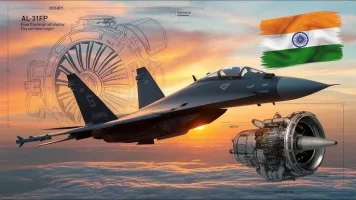- Views: 2K
- Replies: 24

The Indian government has approved a $9 billion contract with Mazagon Dock Shipbuilders Limited (MDL) and Germany's Thyssenkrupp Marine Systems (TKMS) for the design and construction of advanced submarines under Project 76. This agreement includes a comprehensive transfer of technology (ToT) aimed at empowering India to eventually design and build its own submarines.
This collaboration with TKMS marks India's third major attempt to acquire submarine technology in the past four decades. The first attempt began in 1981 with the purchase of four Type 209/1500 submarines from Howaldtswerke-Deutsche Werft (HDW), TKMS's predecessor. This project was hampered by a bribery scandal in 1987, leading to the blacklisting of HDW and a halt in further cooperation.
India's second attempt involved the Scorpène-class submarines under Project 75, signed with France's Naval Group. Between 2017 and 2023, six Scorpène-class submarines were built, with three more planned. However, the Indian Navy and MDL criticized the ToT as inadequate for independent design and development of future submarines, leading to the initiation of the long-delayed Project 75I.
Under the newly approved Project 76, TKMS will design a new class of submarines specifically for the Indian Navy, which will serve as the basis for indigenous submarine development. The hope is that this partnership will succeed where previous efforts failed, enabling India to establish a robust domestic submarine design and manufacturing capability.
However, questions remain about whether India will fully capitalize on this ToT opportunity. Critics point to the Indian Navy and MDL's failure to fully absorb the technology from the Scorpène-class submarines, raising concerns about the effectiveness of past ToT investments. Both the Navy and MDL have faced criticism for lacking the necessary expertise and commitment to fully integrate advanced submarine technologies.
If executed successfully, the partnership with TKMS could provide India with the tools and knowledge to develop state-of-the-art submarine designs. A successful Project 76 would reduce India's reliance on foreign suppliers and bolster its defence manufacturing sector. The new submarines are expected to incorporate advanced capabilities such as air-independent propulsion (AIP) and stealth technology, significantly enhancing the Indian Navy's capabilities.
Project 76 carries high stakes. While previous ToT agreements have had mixed results, this collaboration with TKMS offers a new opportunity to overcome past shortcomings. Success will require strong leadership, a clear plan for technology absorption, and a commitment to developing local expertise.


